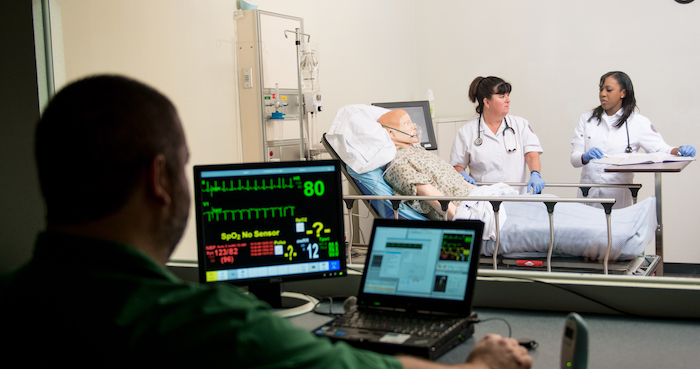
(Photo: Jared Horn/Flickr)
For millions of Californians who live in or near poverty, one key to changing their fortunes and moving into the middle class is a good job. A new report on Los Angeles Basin region out this week shows that the jobs are out there.
The Los Angeles Economic Development Corporation (LAEDC) and the Center for Competitive Workforce (CCW) forecast over 200,000 middle-skill job openings in Los Angeles Basin over the next five years.
Here’s a sample of selected high-growth, middle-skill occupations and the forecasted job numbers over five years:
- Bookkeeping, Accounting and Auditing Clerks (28,278 openings)
- Registered Nurses (RN) (23,670 openings)
- Teacher Assistants (19,800 openings)
- Carpenters (14,330 openings)
- Computer User Support Specialists (13,770 openings)
- Electricians (9,240 openings)
- Licensed Practical and Licensed Vocational Nurses (LVN) (9,070 openings)
- Production, Planning, and Expediting Clerks (8,420 openings)
- Automotive Service Technicians and Mechanics (8,250 openings)
- Social and Human Service Assistants (7,720 openings)
So how to prepare workers for these openings?
The Center for a Competitive Workforce (CCW) is a regional Strong Workforce initiative and collaboration between the LAEDC and region’s 19 community colleges — and already is making strides in aligning employers and community colleges.
“The Community Colleges Regional Directors of Business Engagement have created industry advisory groups in seven different industries which is enabling more direct communication between employers and colleges,” said Jessica Ku Kim, senior workforce director at LAEDC.
The early results are very promising, so promising that CCW is fielding calls from workforce leaders around the country to find out how they can do something similar.
It’s really about getting the right people in the same room and employers educating faculty and CTE Deans about the skills that are needed in today’s economy and schools lining up internships and apprenticeships that can have the students experience the “real world” and be more attractive to employers.
Ku Kim acknowledged that not all local employers are using the community colleges as a workforce pipeline either because they never have or in the past found the attempts at alignment non-productive. Many of the employers who are actively working with the colleges are having success and she expects that trend to increase.
“Getting employers and community colleges effectively working together was a reason the California Economic Summit promoted the increase in funding of the workforce efforts of the community colleges,” said Micah Weinberg, CEO of California Forward. “To see this progress in Los Angeles is to understand we are taking the right steps toward making sure more Californians can find good jobs.”
The data that CCW and LAEDC are developing include the five-year data on the number of job openings, the supply of talent from the region’s community college system, average forecasted wage levels, an assessment of each occupation’s automation risk, and a crosswalk of inter-occupation transferable skills. Each of the profiled ‘middle-skill’ occupations is accessible with more than a high school diploma but less than a bachelor’s degree, pay above a living wage and will provide opportunities for gainful employment for many thousands of Angelinos over the next half-decade.
The analysis is useful to college faculty as they develop new or revise existing career education programs, curricula and stackable certificates that are industry-driven and adaptive to the speed of labor market changes within LA’s knowledge-based economy. In addition, the reports’ analyses are useful to local employers who must identify reliable sources of talent to fill their employee ranks, as well for job-seekers, incumbent workers, students and those unemployed people who want to know which occupations offer entry and where to find the requisite technical skills to advance their career prospects.
“These reports illuminate opportunities for Southern California’s community colleges and will spur partnerships with local businesses, but more importantly, this report will also help inform students, who ultimately drive demand for programs that will help them launch their careers,” said Dr. Erika Endrijonas, superintendent/president of Pasadena City College, one of the 19 community colleges partnering with LAEDC in the Center for a Competitive Workforce.
CCW is funded by the California Community Colleges Chancellor’s Office as a Strong Workforce Program Los Angeles Regional Project.

